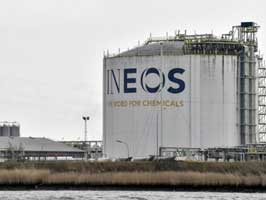Plants: Ineos aromatics complex in Belgium loses environmental licence

The Flanders Council for Permit Disputes has suspended the permit issued by the Flemish government for chemical company Ineos Aromatics to operate in Geel and Laakdal, following environmentalist groups’ appeal over cobalt discharges. This means Ineos Aromatics must cease operations until a new licence can be obtained, but Ineos denies this.
The licence was granted by the Flemish government last year after the previous one expired. Two nature groups appealed, saying the government had not sufficiently investigated whether the company's cobalt discharges were too harmful to the water quality of the Grote Nete river.
The council agrees, saying the environmental impact report prepared as part of the permit process shows that the river would deteriorate based on the discharge standards. "As the cobalt pollution in the Grote Nete is already in the lowest quality class, 'not good', any deterioration of this parameter is in principle prohibited," it said.
Meanwhile, Ineos Aromatics says it is "shocked" by the decision and is reviewing it with legal advisers to consider the next steps. However, the company, which employs around 360 people, disagrees that operations should cease immediately.
"We are happy to point out that in the event of the revocation of a new licence without replacement, the applicant has the right to continue operations under the previous operating licence, which is reactivated, until the Environment minister makes a new decision," the company said. "So there is no question of closing down operations."
According to the Belgian News Agency, this decision could result in other lawsuits and Flemish permit policy, plus it adds that nature associations BBL and Natuurpunt call it "a victory for more healthy watercourses and therefore healthy citizens" in Flanders.
The Flemish government will have to make a new decision within three months, taking into account the annulment.
Earlier, UK firm Ineos’s planned ethane cracker in the port of Antwerp, was granted an environmental permit. Among other conditions, the British chemical company is still required to make the Project One plant climate-neutral within ten years of the start of operation, provided the techniques and infrastructure are available at that time. Strict emission and discharge standards must also be respected during the operation phase.
(PRA)SUBSCRIBE to Get the Latest Updates from PRA Click Here»








